
Game Design Essentials
Level Up Your Skills: Online Game Design for Beginners with Industry Experts
Learn Essential Tools and Techniques to Begin Your Game Design Journey
Uncover what makes a video game compelling and start building your knowledge in designing game systems while you explore industry-used software, including Unreal Engine and Photoshop.
Why study game design with us:
- Receive mentorship from professional game designers
- We are an Unreal Academic Partner and Authorized Training Center
- Discover industry techniques and workflows
- Private 1-on-1 or small group classes (max. 4 students)
Learn the basics of game design through systems and mechanics, understand different job roles and team structures, deconstruct games to reveal intricate design decisions, and start designing and building your own game!
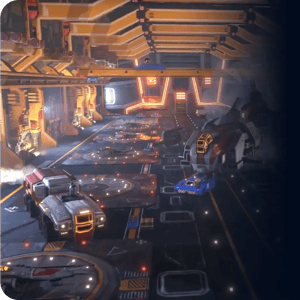
Master Your Skills. Master Your Future.
Our mission is to ensure graduates are the best trained and best prepared for a successful career in their chosen field.
Everything You Need To Know
 Qualification
Industry certificate
Qualification
Industry certificate
 Study Load
Study Load
20hrs/week
 Program Length
Program Length
3 months
 Delivery Mode
Online live classes
Delivery Mode
Online live classesCustom video lectures
Personalised mentor feedback
 Skill Level
Skill Level
Beginner
No entry requirements
 Start Dates
Start Dates

Your pathway to the film and games industry
This short course is equivalent to term one of the Foundations course. On completion of the Essentials course, if you decide to progress further with your studies, you'll enroll straight into term two of the corresponding Foundations course which means you'll already be one-third of the way through your studies! Continue your learning journey towards an exciting career in the industry by enrolling into the Foundations Career Track.

Want to take your education higher?
Did you know that the subjects you complete in the career track courses can be used to apply for credit toward our accredited degrees and diplomas in the same discipline?
The skills and knowledge you build in any industry-certificate course can be transferred into academic credits through our Advanced Standing and Credit Transfer process. So, if you decide to take your studies to the next level, know that your prior learning will be recognized.
Compare your options and find out which course is right for you.
Foundations 1: Essentials of Game Design
Before you can begin building a game you need a basic understanding of game design theory. We'll look at HOW things should be designed, WHY they work, and WHAT you need to do to make a compelling game. See how a platform can change the game design in fundamental ways, and how the differences must be adapted across genres.
Expect to play a LOT of games in the name of research. Every great designer must know how to analyze, deconstruct and understand how each game differs and why. You'll achieve this by learning how to paper design and concept, getting the hang of writing a level design specification, and ensuring level functionality and other technical needs are met.
*This short course is equivalent to the first term of the Game Design Foundations course. If you continue your learning journey, you'll be eligible to join the Foundations course from Term 2 onwards.
- Understand what a game and game systems are and how to design them
- Design compelling game systems, quests & objectives
- Design core gameplay mechanics
- Add visuals to enhance levels
- Start learning the Unreal game engine and building simple prototypes
Portfolio projects: Game pitch document, game design document, UE gameplay prototype.
- Introduction to Game Systems
- System Design
- Communicating
- Visual Design
- Game Genres
- Core Systems
- Development Process
- Single Player Design
- Technical Design
- Level Design
- Prototyping
- Creating a Prototype
Download the Course Guide
Your creative journey begins here! Download our comprehensive course guide and discover the exciting educational opportunities that await you.Group Class
$1,222 USD/mo4 students max class size
Students are assigned mentor
Group interaction & collaboration
Private 1:1
$1,711 USD/moPrivate dedicated mentor
Students choose their mentor
More dedicated time per week
Don't Put Your Future On Hold
Financing shouldn't stand in the way of pursuing your dream career. No matter where you are in your creative learning journey, our financing options have been designed with you in mind.Learn Directly From Film & Game Mentors
To be the best, it helps to learn from the best. All game design classes are taught by professional game designers with years of experience.


Eric Jensen
Eric is a Design Manager at PlayStation's Bend Studio. He is excited to share his journey and knowledge he has gained with others.
Known for Days Gone


Heath Smith
Design Director at RiffRaff Games, Heath has 17+ years of game design experience at top studios across North America and Australia.
Known for Shadow of the Tomb Raider
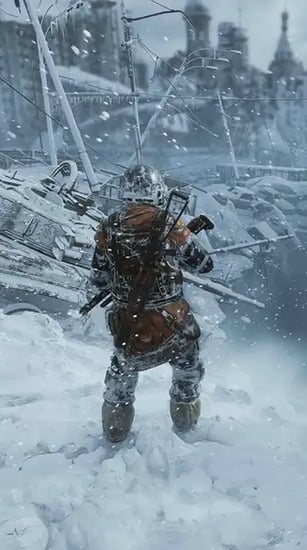

Anthony Cardahi
Anthony is a passionate gamer working in the industry for 10+ years. He loves sharing ideas and perspectives, and hopes his experience in the industry can help newcomers.
Known for Metro: Exodus
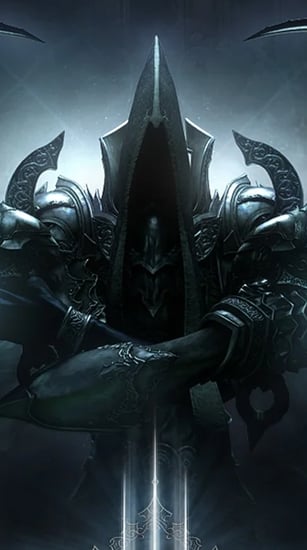

Travis McGeathy
Known for Diablo III


Daniel Pinch
Daniel's worked on games like World of Tanks, Damaged Core, and more! He currently works at People Can Fly as a Senior Game Designer.
Known for World of Tanks
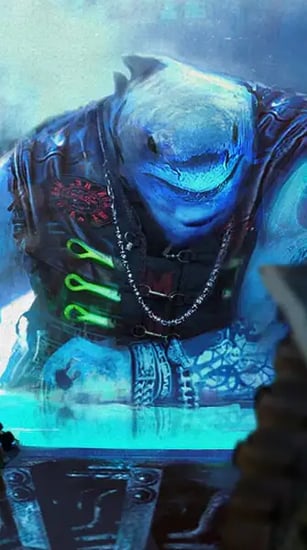

Stephan Logier
Known for Beyond Good and Evil 2


Glenn Storm
Known for Star Wars: The Clone Wars
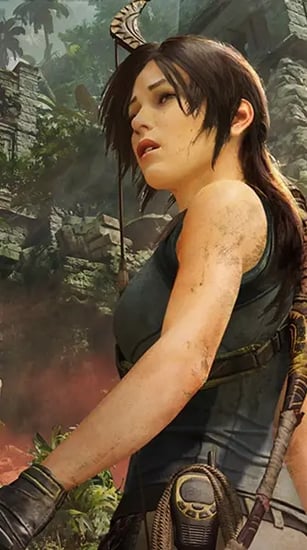

Mathieu Bissonnette
Known for Shadow of the Tomb Raider


Scot Bayless
Scot helped create the first Advanced Dungeons & Dragons roleplaying game, and was responsible for hits like Falcon 3.0, Crimson Skies, 007: Everything or Nothing and DMC.
Known for DMC
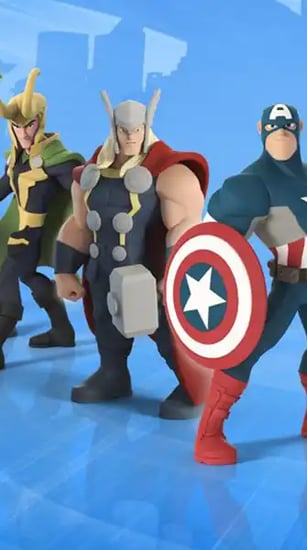

Tim Huntsman
Tim is in his fourth decade of designing and producing video games. He has a number of top-selling and award-winning titles to his name.
Known for Disney Infinity


Pascal Luban
Known for Splinter Cell: Pandora Tomorrow


Philippe Baude
Philippe is a Lead Game Designer at Ubisoft. He specializes in 3Cs, Rational Systems Design, Meta-game/Economy Design, and Designer Mentorship. He’s worked on Far Cry, Watch Dogs, and Hyperscape.
Known for Watch Dogs
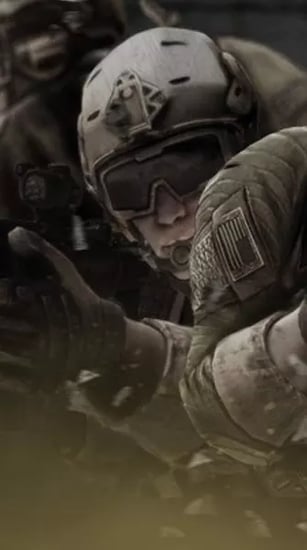

Casey Bradley
Casey is a multi-disciplined designer—he creates levels, designs gameplay systems, and leads design teams. He’s operated in the industry for over a decade and currently works at Traega Entertainment.
Known for America's Army franchise


Jason Roberts
Known for Diablo IV
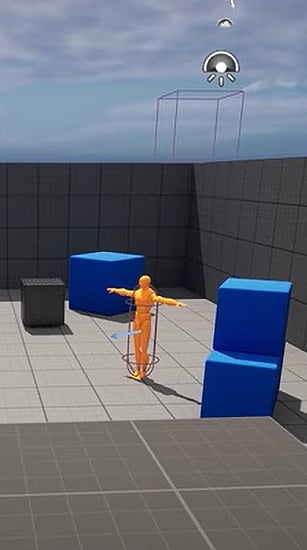

Ryan Laley
Known for Online Education
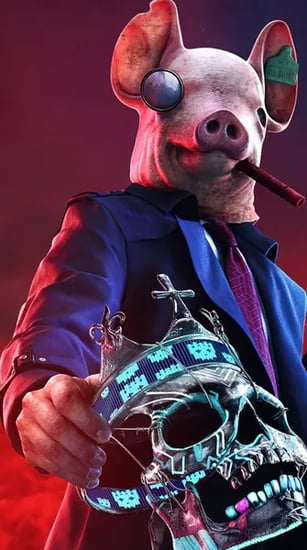

Roozbeh Madanipour
Known for Watch Dogs: Legion


Max Tishakov
Known for Outriders Worldslayer
Get The Education Your Deserve
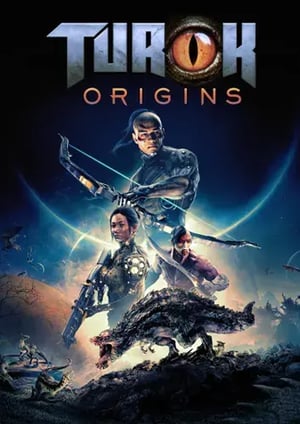
"A cornerstone for your career.
I can honestly say that even by having experience in the field, I've gained a mind-blowing volume of understanding, even when considering the most basic of aspects behind Game Design and Development! Concepts I thought I knew now look so different in a new light. Lessons are challenging, and assignments and classes engaging. A must for any professional looking to up their game a notch or 73."

Fritz M | Game Development
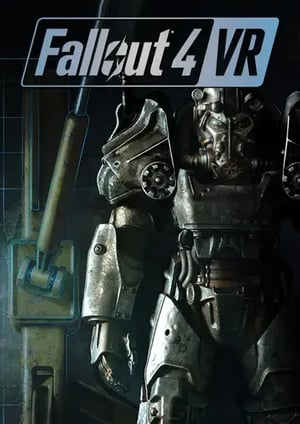
"CG Spectrum's training got me hired in the industry.
CG Spectrum helped me build the skills and connections that directly resulted in getting hired as a Gameplay Programmer at New World Interactive."

Jeff G | Game Development
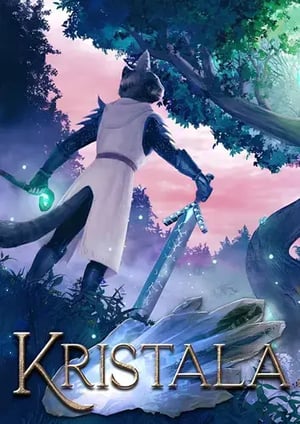
"CG Spectrum has exceeded my expectations in terms of quality of learning, support, and continued guidance from mentors and peers.
Also, the community at CG Spectrum is amazing! People are passionate about what they study and do. It's a great study and work environment."

Alexios V | Game Development

"CG Spectrum is the perfect place to gain focus, understanding, an encouragement for your journey.
If you are looking for a supportive place to gain or hone skills in game design or other verticals, CGS is a fantastic and worthy place to dive in."

Shaul H | Game Development
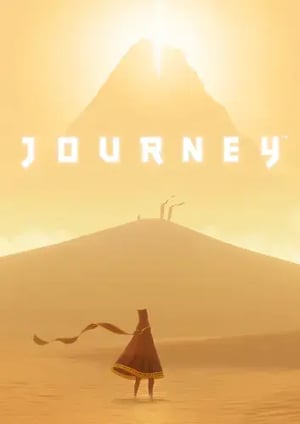
"I chose CG Spectrum because I wanted to take my learning to the next level & ensure I was working on the most efficient way to get into the industry.
Chris Swain was the guiding force that kept me headed in the right direction with his sage advice. He was also a calming presence that kept me relaxed during what was often an overwhelming experience.
Thank you Chris for being a friend, a motivator, and a teammate during my time at CG Spectrum and beyond."
 Luke Williford | Game Development
Luke Williford | Game Development
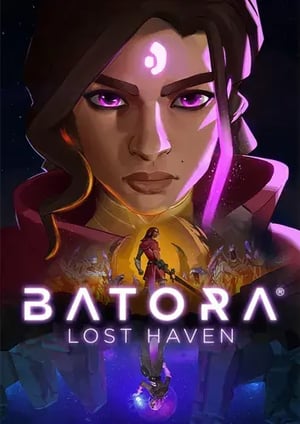
"CG Spectrum prepares you to work as a professional game designer from day one.
The most impressive quality CG Spectrum offers is a course that makes study as if you were on your first job. If you are willing to put the energy into studying and do the assignments as if you were on the job, and if you are ready to hear your mentor's suggestions and challenge yourself to push your limits, you will get an experience very similar to the workplace. "

Loris C | Game Development
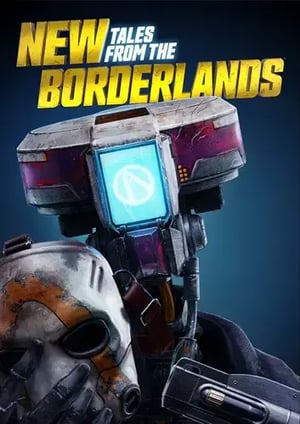
"My experience at CG Spectrum was second to none, and taught me so much more than I initially anticipated.
My mentor took me from being barely computer literate to an animator working at a studio in only a year and a half. The information and level of teaching at CG Spectrum will absolutely not be found anywhere else."

Kieran L | Game Art & Animation
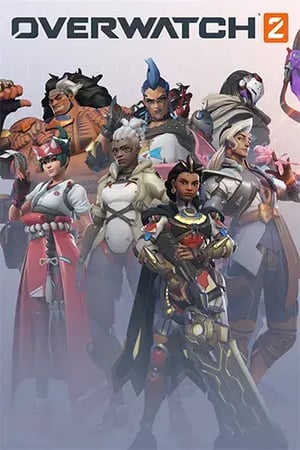
"Having a mentor definitely helped! It was awesome to have someone I could reach out to when I was stuck.
Getting the weekly feedback also helped in terms of what to improve and what to focus on next. In Term 3, we learned Unreal Engine; I implemented the knowledge I gained in that course to my Advanced 3D Modeling Course to create some additional renders that demonstrated my understanding of using and integrating game-ready assets into an actual game engine.

Benjamin O | Game Art & Animation
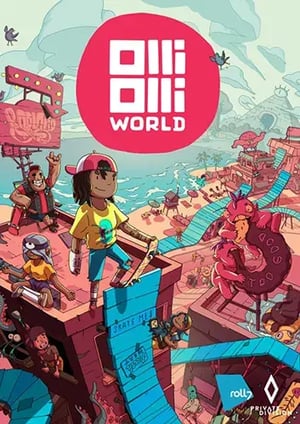
"I highly recommend signing up with CG Spectrum!
I was looking for a final push to bump my skills and finally start applying for jobs as an artist. Shortly after finishing my Advanced 3D Modeling Course I landed my first job as Junior Environment Artist, which was my dream!"

Kasia P | Game Art & Animation

"Having someone that is part of the industry personalizing your training, and providing honest feedback backed up by years of experience is something very valuable you won't get in other Game Programming Courses.
My mentor assisted me in realizing a game prototype I had in mind for quite a long time, and that was amazing. I highly recommend anyone interested in the course to spend that extra money and go for the 1-to-1 formula, because that's where you'll see the biggest difference with other online resources."

Luca Piedrelli | Game Development
Join Our Alumni at World Class Studios
Our mission is to train highly skilled graduates ensuring they are prepared for a successful career. Take the first step towards joining our alumni at world-class studios creating work that inspires.












Questions? We Have Answers
Age Minimum
The general minimum age to be able to enroll in our industry certificate courses is 16. We require parent or guardian consent during the enrollment process for applicants under 18.
Students under 16 will require a further assessment before they can officially enrol. This may include an interview with a course advisor and the creation of a study plan to ensure they have considered how they will manage a college-level workload.
English Proficiency
We expect our students to have a good understanding of written and spoken English. There’s no specific ’level'; however, you must be able to understand video tutorials in English (no subtitles) and speak with your mentor in English during your live Q&A session.
Computer Literacy
To be successful in this program, you will need basic computer skills and a computer that meets the minimum specifications (see next question).
Software:
Students are required to use Unreal Engine, which is free to download.
We also recommend that you purchase Photoshop/Illustrator (Creative Cloud 'All Apps' plan with a student discount) for the length of your studies. . Free alternatives to Photoshop include GIMP/Inkscape.
Hardware:
Students will need a dedicated graphics card and a computer that meets the minimum requirements for Unreal Engine and Photoshop.
Please note: as the software we use is regularly updated, please check the specs against the latest available version at the time of enroling.
At CG Spectrum, occasionally, it is possible to skip ahead and start studying in later terms. We highly recommend that most students do not skip ahead as each subject covers a tremendous amount of information and skills that will be used throughout the entire program (and will require some catching up in your own time if skipped).
Term one is still incredibly challenging and covers a lot of material. It includes over 25 hours of lecture videos and there are over a dozen assignments students need to complete. All of the future course material will build upon this foundation.
The course will cover some basic concepts, teach the basics of using the Unreal Engine, teach the fundamentals of system and level design, and teach you how to deconstruct games properly and design using a systemic approach.
If you have not released an indie game or worked professionally to design PC/Console AAA games, we highly recommend you do not skip the first term. Even if you have designed mobile games, VR, or other genres or platforms of games, we do not recommend skipping it as the nuances are different in each platform.
If you want to be considered for skipping the first term, you must submit a portfolio to be reviewed and considered. The portfolio must include:
- Example Pitch Deck, Game Pitch, and a Game Design Document (GDD) for a major action, adventure, role-playing, shooter or other mainstream AAA PC/console game.
- Whitebox level prototype in Unreal Engine or Unity.
- Example PLAYABLE level or game built in Unreal Engine or Unity. It must also be action, adventure, role-playing, shooter, or other mainstream AAA PC/console game.
This will ensure that you are familiar with the right materials, concepts, and tools to design new game concepts and build them in a game engine.
If you are unsure if your skills are sufficient, send us your portfolio when you apply, and we'll arrange for the department head to review it and, depending on the circumstances, a student interview.
This short course will get you started on your creative journey, but in a competitive industry, we advise continuing your studies with the full career track.
The game design career track includes the Game Design Foundations and the Game Designer Specialization (available early 2025). It is designed to better prepare you for a job in the industry and help increase your employment opportunities.
The career track ensures you build strong foundational skills before moving on to more complex techniques and workflows. You will also dedicate time to career development and preparing a polished portfolio while you gain invaluable industry insights.
Some of the junior game design jobs you could pursue after completing the full study pathway include:
Discover more about these game development jobs, tips, and salary expectations on our careers page:
Looking For Something Else?
Check out our full range of courses with study options for all skill levels, from short introductory courses, specialized industry tracks and accredited degrees and diplomas



